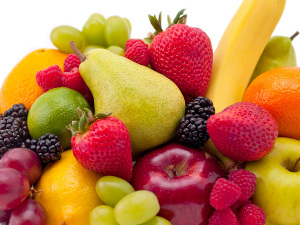U.S.: GMO labeling bill passes Congress

Fruit and vegetable groups have praised the passage of the Roberts-Stabenow GMO labeling bill in the House of Representatives today, less than a week after it was passed through the Senate.
The only step left in the process now is for President Barack Obama to sign the bill into law, which would effectively prevent states from setting their own labeling regimes for genetically modified foods.
The law would mean the United States Department of Agriculture (USDA) has to set up a new labeling standard allowing food manufacturers to use a QR code, text or a symbol to show whether their products contain GMOs.
"We commend Senate Agriculture Committee Chairman Pat Roberts [KS] and Ranking Member Debbie Stabenow [MI] and House Ag Chairman Michael Conaway [TX] and Ranking Member Collin Peterson [MN] for their leadership in passing the Roberts-Stabenow GMO labeling legislation out of their respective chambers," said Western Growers president Tom Nassif in a release.
"We now call on President Obama to sign this bill into law."
In the release, Nassif said the bipartisan legislation would benefit both consumers and food companies, given it would involve uniform disclosure requirements that would bring transparency without the confusion of a "patchwork of state labeling standards".
"Likewise, a consistent federal labeling standard will allow food companies to mitigate the economic impact of multiple state requirements, while providing them with flexible options to communicate with their customers, depending on size and level of technological sophistication," Nassif said.
"We do not anticipate this bill having an immediate impact on the fresh produce industry since the vast majority of fruits and vegetables are not grown from genetically modified seeds.
"However, we believe this bill will ultimately provide a platform for the food industry to educate consumers on the current and potential benefits of genetically modified foods."
He said the science already showed GM food was safe to eat, and the technology was helping society grow more food while protecting the environment and reducing dependence on natural resources.
Produce Marketing Association (PMA) chief science & technology officer Dr. Bob Whitaker said his organization applauded the passage.
"Having one national framework for labeling is vastly preferred by our membership to the risk of a patchwork of differing state-by-state laws, and the marketplace and consumer confusion that would have certainly followed," Whitaker said.
"That said, PMA is concerned about the precedent that this legislation sets by requiring disclosure of information that does not impact human health and safety.
"There is broad scientific consensus that foods from GE crops are safe, as concluded a recent report from the National Academies of Science, Engineering and Medicine."
He said that generally, the PMA planned to continue to advocate for a flexible food production system that didn't curtail the innovation that fresh produce and other food producers would need to feed the world's growing population.
"Specific to this law, PMA will closely monitor USDA’s rulemaking process and work to ensure that the fresh produce industry’s voice is represented if/as needed."
However, the bill has been divisive, earning it the alternative moniker, the "Deny Americans the Right to Know" (DARK) Act.
Wide consumer distrust of the agriculture industry and its use of genetic modification while rallying against transparent labeling has led the private sector to take matters into its own hands to regain consumer confidence.
One of the actions taken has been to gain certification to label products as non-GMO; indeed, this has been increasingly common in the fruit industry.
A Non-GMO Project spokesperson told www.freshfruitportal.com there were currently 34,774 Non-GMO Project Verified products in the U.S. and Canada.
Photo: www.shutterstock.com








































